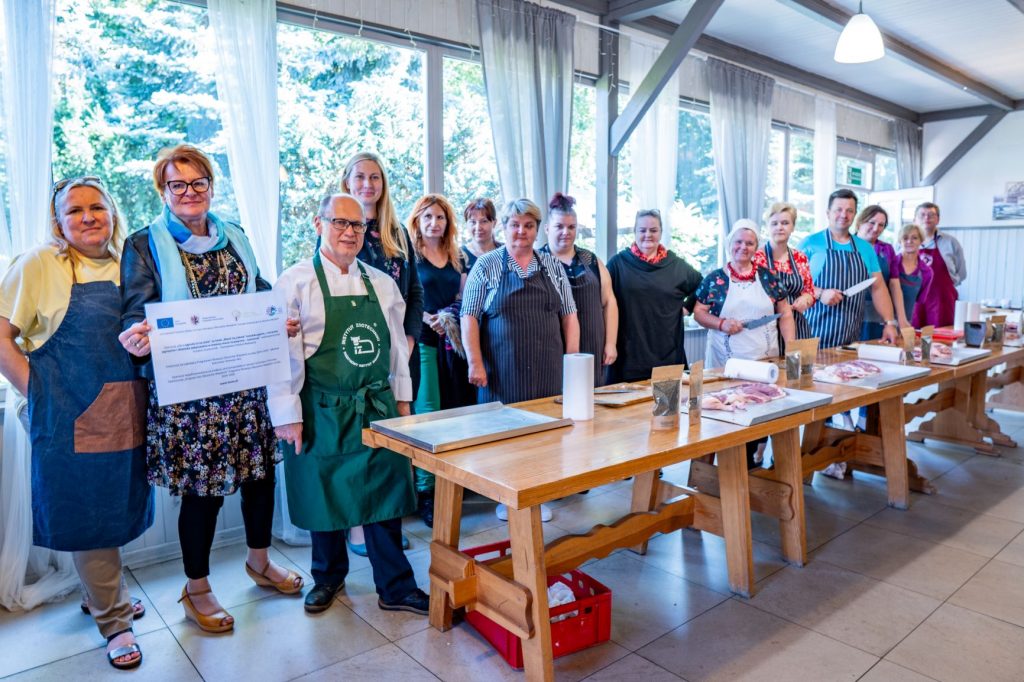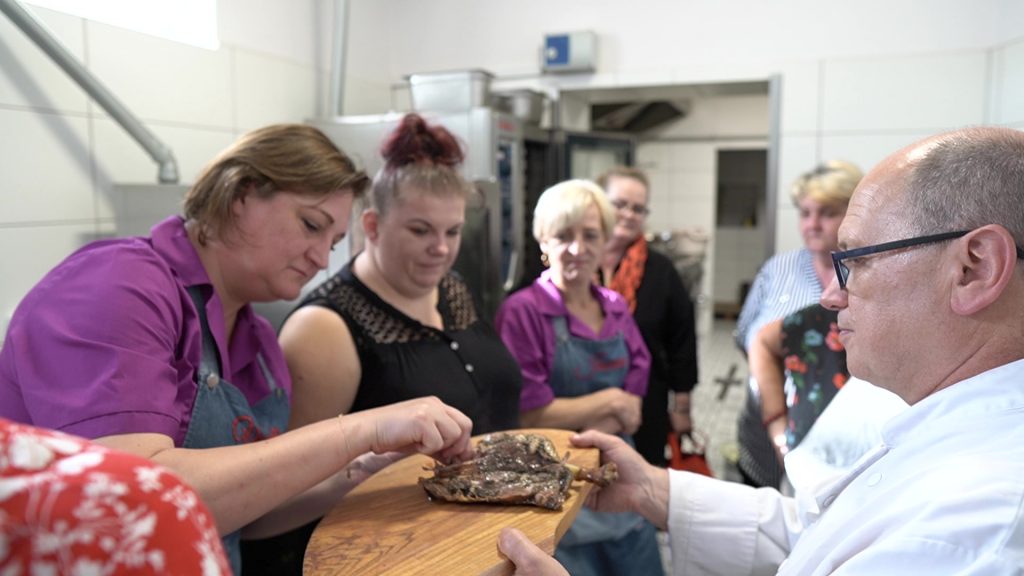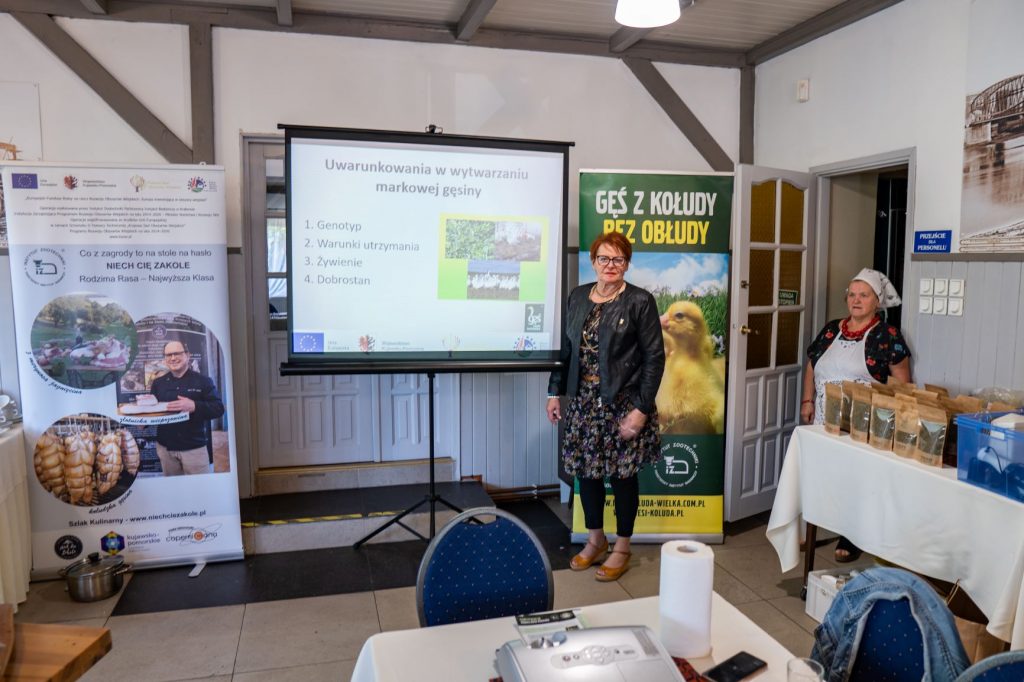Efficient and creative use of Kołuda goose® carcass in dishes, ready-to-eat and processed meat products with regard to the aspects of local culinary tradition

Operation conducted by the National Research Institute of Animal Production in Kraków
The Managing Authority of the Rural Development Programme for 2014-2020 – the Minister of Agriculture and Rural Development
Operation co-financed from the European Union funds under Scheme II of Technical Assistance
“National Rural Network” of the Rural Development Programme for 2014-2020
Education and implementation workshops “Native breed is top class indeed”: Efficient and creative use of Kołuda goose® carcass in dishes, ready-to-eat and processed meat products with regard to the aspects of local culinary tradition
On 7–8 September 2021 at the Ostromecka Restaurant in Ostromecko, the National Research Institute of Animal Production organized education and implementation workshops, Efficient and creative use of Kołuda goose® carcass in dishes, ready-to-eat and processed meat products with regard to the aspects of local culinary tradition.
The workshops were aimed to transfer the knowledge to participating restaurateurs on how to effectively incorporate dishes and products made from the native White Kołuda goose® into their menus through efficient use of the carcasses, preparation of carcass cuts for sale, and packaging of semi-finished products.
The event was attended by the owners and staff of culinary and agritourism operators from the “Niech Cię Zakole” trail, those collaborating with this trail, and culinary promoters (in the testing part of the workshops).
Altogether the workshop was attended by 32 people from the Kujawsko-Pomorskie and Pomorskie Voivodeships.
The workshop was divided into two panels:
Day one
Theoretical panel – dr inż. Halina Bielińska, Director of the Kołuda Wielka Experimental Station
- Lecture – Native breeds of geese – characteristics, qualities and advantages in light of research findings.
- A show of carcass cutting with comments on the culinary value and traditional use of carcass cuts in local processing – White Kołuda goose® carcass.
Practical panel – Piotr Lenart, culinary expert
- Making three selected traditional goose dishes (including those on the List of Traditional Products kept by the Ministry of Agriculture and Rural Development), considered regional.
- Making three ready-to-eat products from goose meat based on a recipe book.
- Packaging of takeaway dishes/products.
- Presentation, testing and evaluation of dishes and products by the participants and testers – dinner with tested products.
Day two
Theoretical panel–presentation by the culinary expert
- Goose meat menu in the restaurants taking part in the workshops – bill of fare for tourist groups – From hors d’oeuvre to roast goose.
Practical panel
- Making dishes from goose carcass, freely chosen by the teams, from hors d’oeuvre to soup to the main course.
- Making three processed products from goose meat.
- Packaging of takeaway dishes and processed meat products.
- Presentation, testing and evaluation of products and dishes before designation as a quality product from the native breed of goose – Goose in Three Acts with an Intermission.
The workshop was organized as part of the project carried out by the National Research Institute of Animal Production in partnership with the Kuyavian-Pomeranian Tourist Organization and the Tourist Office COPERNICANA Anna Gajewska: “From Farm to Table” under the “Niech Cię Zakole” label – Kołuda goose, Merino lamb and Złotnicka pork in the local culinary tourism brand”, co-financed from the European Union funds under Scheme II of Technical Assistance, “National Rural Network” of the Rural Development Programme for 2014-2020.
The aim of the project is to introduce products and dishes made exclusively from locally raised native breeds into local cuisine and agritourism of the “Niech Cię Zakole” culinary trail.




